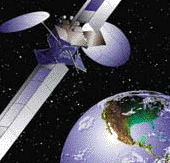 |
 |
 |
Main Page of the Journal Main Page of the WSEAS
Special Issues
for WSEAS Trans. on |
|||
|
|
|
Open Call for Papers for 2 special issues B) "Carbon Strings Systems and Applications" * * * * * A) Special Issue in:
"Mathematical and Computational Methods in
Biology and Biomedicine" Topics include Solution of various Problems in Biology and Biomedicine using modern and classical mathematical methods and computational techniques
Important dates
Upload your paper via http://worldses.org/transactions/ Select Journal: WSEAS Trans. on BIOLOGY and BIOMEDICINE and in the field Special (Invited) Issue fill in Mathematical and Computational Methods in Biology and Biomedicine" * * * * * B) Special Issue in: "Carbon Strings Systems and Applications" WSEAS Transactions on Biology and Biomedicine seeks original manuscripts for a Special Issue in Carbon Strings Systems and Applications. Aim/Topics: WSEAS Transactions on Biology and Biomedicine seeks original manuscripts for a Special Issue in Carbon String Systems and Applications. Differentiating living systems has been a problem for integrative omics science. Genomic differentiation requires a better robustness in expanded biological space. Carbon transferring/interfering systems are an emergent paradigm to notions of quantum biology of partial derivatives opposing uncertainty principle as energy metabolism boundaries within bio systems strings computation of independent relative space/time hubs can be considered as a function of genomic capacity. It is a new concept in energy computation and mutability cause relationship, and as such leaves much room for life science development considering mass/time compression principle relative to energy/space expansion as a function of special non linear functions interfering with uncertainty matrix derived computational omics biology. Allocation of sequence comparative proteomics and/or microarray analysis would be introduced as a function of origin of carbon signalling. This paper will present the foundations of Carbomics strings algorithms development, considering the interference of epigenomics with genomics through metabolomics and small molecule-protein motif selectivity – instability and transient character of RCM (reversible covalent modifications). Ultimately, it will be demonstrated that the use of such Carbomics systems makes a viable foundation to the field of regenerative medicine, diagnostic, prognosis, novel drug target development, semi-artificial machines and bio-energy generation, radiation detectors, synthetic biology and perhaps more generally, to formal integration of special math functions and organic quantum chemistry language as a definite form of integrative physical tech analysis within carbon-X interference functional capacity, thus enabling empirical representation of energy/space shifts though matter/time topology constrain computation. Carbomics systems have demonstrated the ability to formalize in a computationally efficient manner the approximate rationality of oxidizing composed functions in biochemical systems and to introduce robust differentionation rules of entropic versus negentropic forces within the scope of biophysics, thus reducing biology to defining space vectors – matter occupying time determined by the interference of particles, strings and waves. One of the important research challenges today is to further develop Carbon Signalling theory towards controlling living systems evolvement with small molecule-protein robust interaction using nanotech intracellular quantum and/or matter perturbation in semi artificial conditions as a complement to environmental constrains (growth conditions etc) so that systems genomic mutability can evolve within a numerical function of self compensatory mechanisms representing self regulatory constrains. To address the problems of modelling, control, prediction, and data processing in a dynamically changing and evolving environment, a system must be able to fully adapt its functional differential core algorithm structure and to adjust its parameters (linear kinetic constants within evolving network), rather than use a pre-trained and a fixed structure. That is, the system must be able to self-organize (amplify).
Important dates
|
||
|
|
[Upcoming Conferences with Expired Deadline], [History of the WSEAS Conferences]
Copyright © WSEAS
www.wseas.org